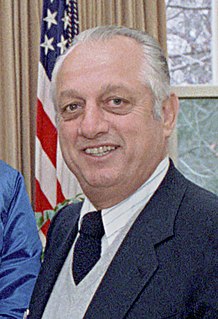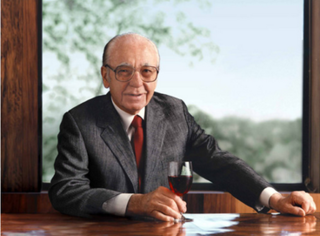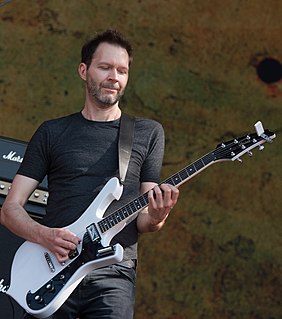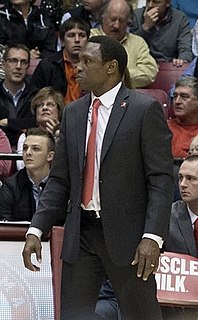A Quote by Paul Beatty
In White Boy Shuffle, I combined my seventh-grade teacher, Mr. Takemoto, who really saved me - I don't think I've ever told anyone this - and my first basketball coach, Mr. Shimizu, into one character. Something about the way they talked about things, and their attitudes, had a huge impact on me. Not that I necessarily agreed with them. It was important to me to just put them there to stay grounded.
Related Quotes
I think that's why I wanted to write about seventh grade. I'd say seventh grade is a time when kids are really exploring a lot and becoming aware of the world around them in a deeper way. And they just have sort of have a wider appreciation of what's happening around them. They are seeing themselves from the outside more than they had before.
The gym teacher's name was Mr. Caruso. Mr. Caruso did
not speak English. He spoke 'Gym.' One day I was playing
basketball and Mr. Caruso told me I would have to get
an athletic supporter. He didn't express himself exactly
that way, though. He said, 'Hey, you, one day you're gonna
go up for a rebound and the family jewels aren't gonna
go with ya.' I had no idea what he was talking about.
Next day I showed up for practice without my watch and
my mezuzah. He said, 'Did ya take care of the family jewels?'
I said, 'I left 'em in my locker.' Took us a half hour to
revive Mr. Caruso.
I don't think he was knowable. I mean, when most people talk about knowing somebody a lot or a little, they're talking about the secrets they've been told or haven't been told. They're talking about intimate things, family things, love things," that nice old lady said to me. "Mr. Hoenikker had all those things in his life, the way every living person has to, but they weren't the main things with him.
Mr. Crossley suddenly wondered why he was why he was worrying about the note. It was only a joke, after all. He cleared his throat. Everyone looked up hopefully. 'Somebody,' said Mr. Crossley, 'seems to have sent me a Halloween message.' And he read out the note: 'SOMEONE IN THIS CLASS IS A WITCH.' 6B thought this was splendid news. Hands shot up all over the room like a bed of beansprouts. 'It's me, Mr. Crossley!' 'Mr. Crossley, I'm the witch!' 'Can I be the witch, Mr. Crossley?' 'Me, Mr. Crossley, me, me, me!
Other than my parents, no one had a bigger influence on my life than Coach Smith. He was more than a coach – he was my mentor, my teacher, my second father. Coach was always there for me whenever I needed him and I loved him for it. In teaching me the game of basketball, he taught me about life. My heart goes out to Linnea and their kids. We've lost a great man who had an incredible impact on his players, his staff and the entire UNC family.
Mr. Balanchine wanted me to be myself. He didn't want me to look like anyone else. I love teaching our company dancers the Balanchine ballets. I try to give them what was passed down to me and what I learned from him. They dance it so beautifully. It also keeps me close to Mr. Balanchine. He's with me every single day.
I always knew about as a kid, knew that that particular injury at [my grandfather's] finger had been caused in that disaster that killed his brother-in-law, my grandmother's brother. And he never talked about his own brother's death to me. My mother told me about that and told me about the impact on her family. And that's part of what you hear in the first verse of "Miner's Prayer."
I have a brilliant sound design team who's been working with me since 'Mr. Robot,' and one of the things we always think about - and it's also something we think about with cinematography - is how we get inside the characters' heads and how do we place the audience where we want them to be or how we want them to feel at any given moment.
My contract with mercury PolyGram Nashville was about to expire. And I never had really been happy. The company, the record company, just didn't put any promotion behind me. I think one album, maybe the last one I did, they pressed 500 copies. And I was just disgusted with it. And about that time that I got to feeling that way, Lou Robin, my manager, came to me and talked to me about a man called Rick Rubin that he had been talking to that wanted me to sign with his record company.
My standards are so high because of who I serve but it doesn't put any water on my fire for winning. I'm still an intense person. You can be intense and saved. You can compete and still be saved. You can challenge a guy and still be saved. There was nothing soft about me as a player and there isn't anything soft about me as a coach. You want to be a man of integrity and you want the players to know that you care about them. Whether or not they still like you or not is a whole other deal.



































